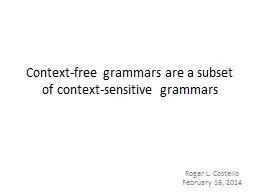PPT-Our context We’re in a context of:
Author : mitsue-stanley | Published Date : 2018-02-09
Knowns Unknowns Unknown unknowns Universities are a thousand year old industry on the cusp of profound change Australia n study Over the next ten15 years
Presentation Embed Code
Download Presentation
Download Presentation The PPT/PDF document "Our context We’re in a context of:" is the property of its rightful owner. Permission is granted to download and print the materials on this website for personal, non-commercial use only, and to display it on your personal computer provided you do not modify the materials and that you retain all copyright notices contained in the materials. By downloading content from our website, you accept the terms of this agreement.
Our context We’re in a context of:: Transcript
Download Rules Of Document
"Our context We’re in a context of:"The content belongs to its owner. You may download and print it for personal use, without modification, and keep all copyright notices. By downloading, you agree to these terms.
Related Documents














![[DOWNLOAD] Food Fix: How to Save Our Health, Our Economy, Our Communities, and Our Planet--One](https://thumbs.docslides.com/882628/download-food-fix-how-to-save-our-health-our-economy-our-communities-and-our-planet-one-bite-at-a-time.jpg)